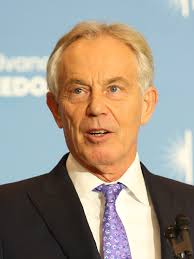
Introduction
Tony Blair, the former Prime Minister of the United Kingdom, remains a significant figure in modern politics. His leadership from 1997 to 2007 marked a transformative era for the UK, impacting both domestic policy and international relations. Understanding Blair’s legacy is crucial for analyzing contemporary political landscapes and the evolution of Labour Party ideologies.
Domestic Policies and Achievements
Blair’s time in office is characterized by a range of domestic policies aimed at improving education, healthcare, and economic performance. Notably, his government introduced the National Health Service (NHS) ‘Foundation Trusts’, which aimed to enhance the efficiency and quality of NHS services. Additionally, his focus on reducing child poverty through tax credits and welfare reforms earned him praise from various sectors. Blair’s leadership style was marked by a strong reliance on spin and media, which helped shape public perception and pushed policies into the spotlight.
Foreign Policy and the Iraq War
One of the most controversial aspects of Blair’s tenure was his foreign policy, particularly regarding the Iraq War in 2003. Supporting the United States in the invasion, Blair faced significant backlash for the decision, which was premised on the belief that Iraq possessed weapons of mass destruction. Although this claim was later discredited, the war profoundly affected international relations, the UK’s standing within the global community, and domestic political dynamics. The fallout from the Iraq War continues to influence public opinion on military intervention and the responsibilities of political leaders.
Public Perception and Impact
Despite his accomplishments, Blair’s legacy remains mixed. He is often credited with modernizing the Labour Party and uniting it under the ‘New Labour’ banner, which sought to appeal to a broader electorate. However, as stark divisions over the Iraq War and economic policies grew, public opinion turned sour during the latter years of his premiership. This shift reflects the importance of transparency and accountability in governance, a lesson that still resonates in today’s political discourse.
Conclusion
Tony Blair’s political legacy is complex and continues to shape debates surrounding the Labour Party and UK politics as a whole. As the world faces new challenges, such as climate change and geopolitical tensions, the lessons drawn from Blair’s strategies and missteps remain relevant. His experience underscores the critical need for leaders to advocate for informed policies and maintain public trust, laying the groundwork for future generations of politicians.



